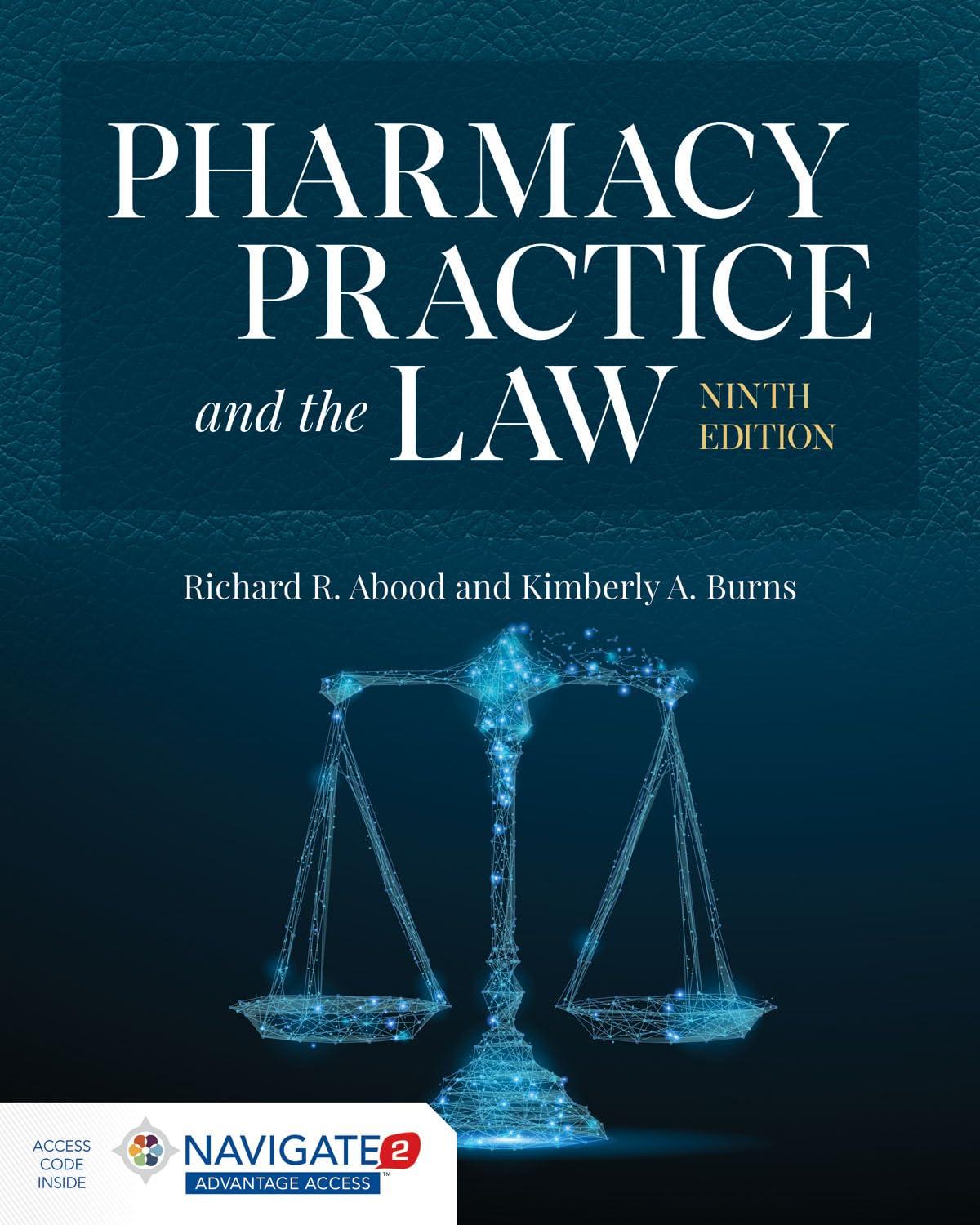In this case, the pharmacist, Hayes, has been charged with dispensing invalid prescriptions in violation of the
Question:
In this case, the pharmacist, Hayes, has been charged with dispensing invalid prescriptions in violation of the corresponding responsibility doctrine. The government contends that Hayes should be charged under § 841 because he knew the prescriptions were not for a legitimate medical purpose. Hayes insists that only the physician can be liable under § 841 because a pharmacist cannot know whether the prescriptions are written for a legitimate medical purpose or not. As you read this case, consider:
When should a pharmacist be charged under § 841 rather than § 842, which normally applies to registrants and carries lesser penalties?
Is the corresponding responsibility doctrine unfair to pharmacists?
Also, does the pharmacist’s argument that the corresponding responsibility doctrine is unconstitutionally vague for pharmacists have some merit?
What does the corresponding responsibility doctrine really mean to a busy pharmacist?
Will pharmacists be liable per se for prescriptions issued for other than legitimate medical purposes?
Step by Step Answer:

Pharmacy Practice And The Law
ISBN: 9781284154979
9th Edition
Authors: Richard R. Abood, Kimberly A. Burns





